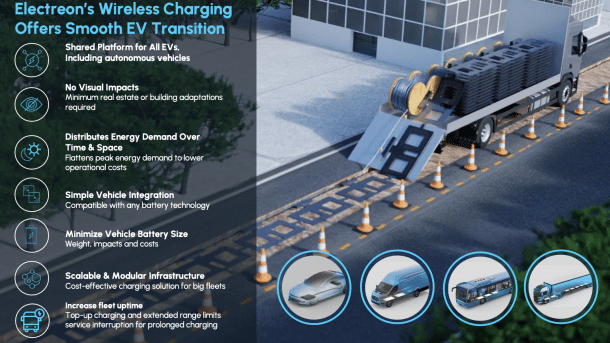Electromobility: E-cars to be charged inductively on the highway
A university project aims to integrate an inductive test lane into a Bavarian highway by 2025 to explore manufacturing and use.

The modular technology from the Israeli company Electreon is said to be cost-efficient to install.
(Bild: Electreon)
- Clemens Gleich
(Hier finden Sie die deutsche Version des Beitrags)
The idea keeps coming up to power electric cars inductively while driving – and yes, it would solve many problems: less weight due to smaller possible batteries, fewer stops for energy reasons, easier electrification of heavy traffic. However, the benefits must be reasonably proportionate to the costs (think of smartphone wireless charging structures).
Time and again, there have been advances and tests for inductive charging while standing – last year, for example, by Volvo. The Friedrich Alexander University of Erlangen-Nuremberg (FAU) is now investigating road construction manufacturing methods that could bring charging infrastructure into lanes at low cost. To this end, the project aims to equip a 1 km lane of a highway in northern Bavaria with Electreon's inductive power transmission system. The test lane should be usable in 2025.
Inductive charging: Technology on the highway is quickly installed
The system's transmission power is said to be up to about 70 kW. Electreon's modular technology is to be rolled out in an asphalt milling operation within one night on the planned kilometer - including road resurfacing. It has not yet been decided which freeway lane will be used. In 2024, Autobahn GmbH will assign a lane to the project whose surface will have to be rehabilitated anyway. It is precisely such synergies that are important if cost efficiency is to be achieved.
(cgl)